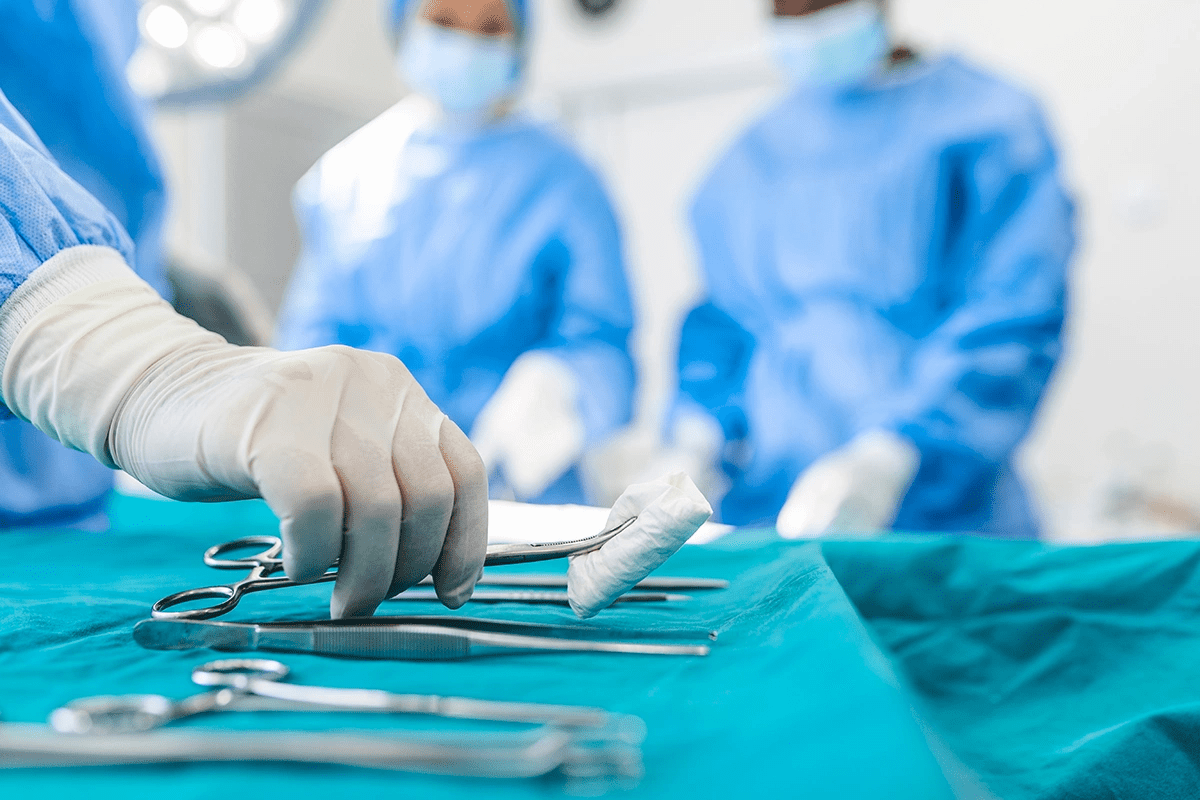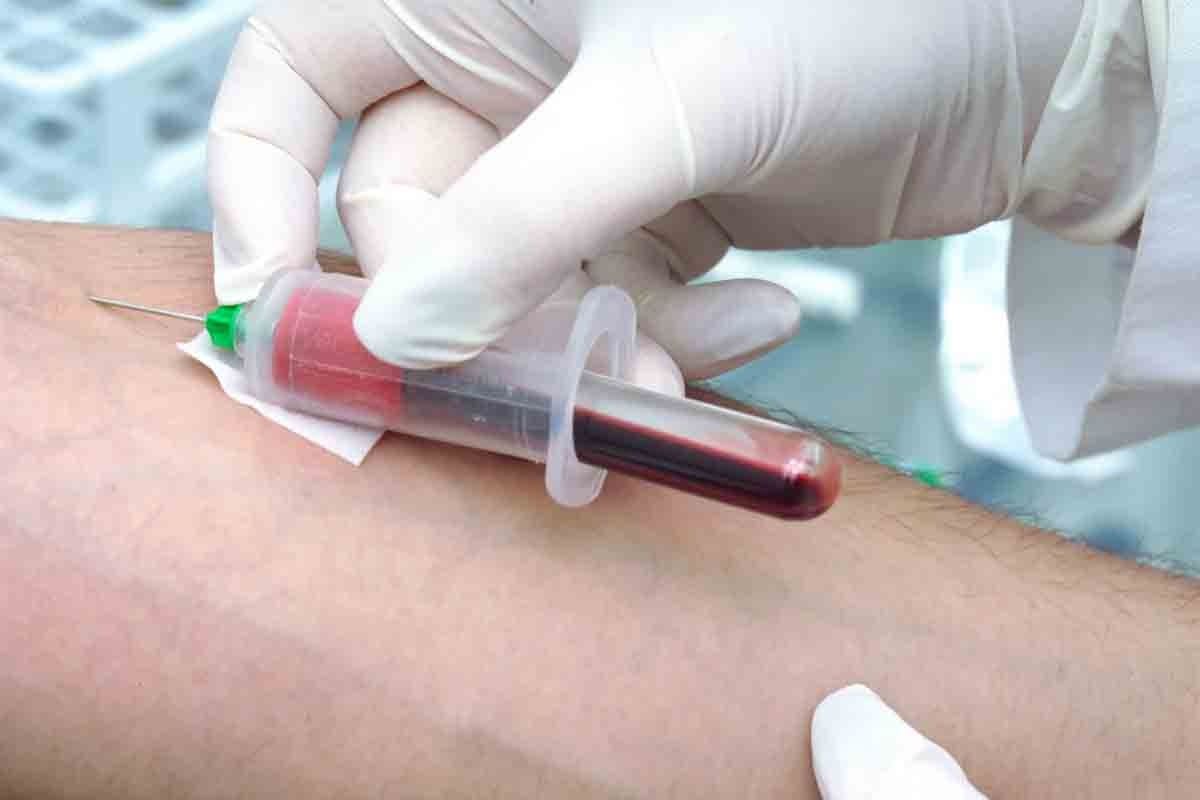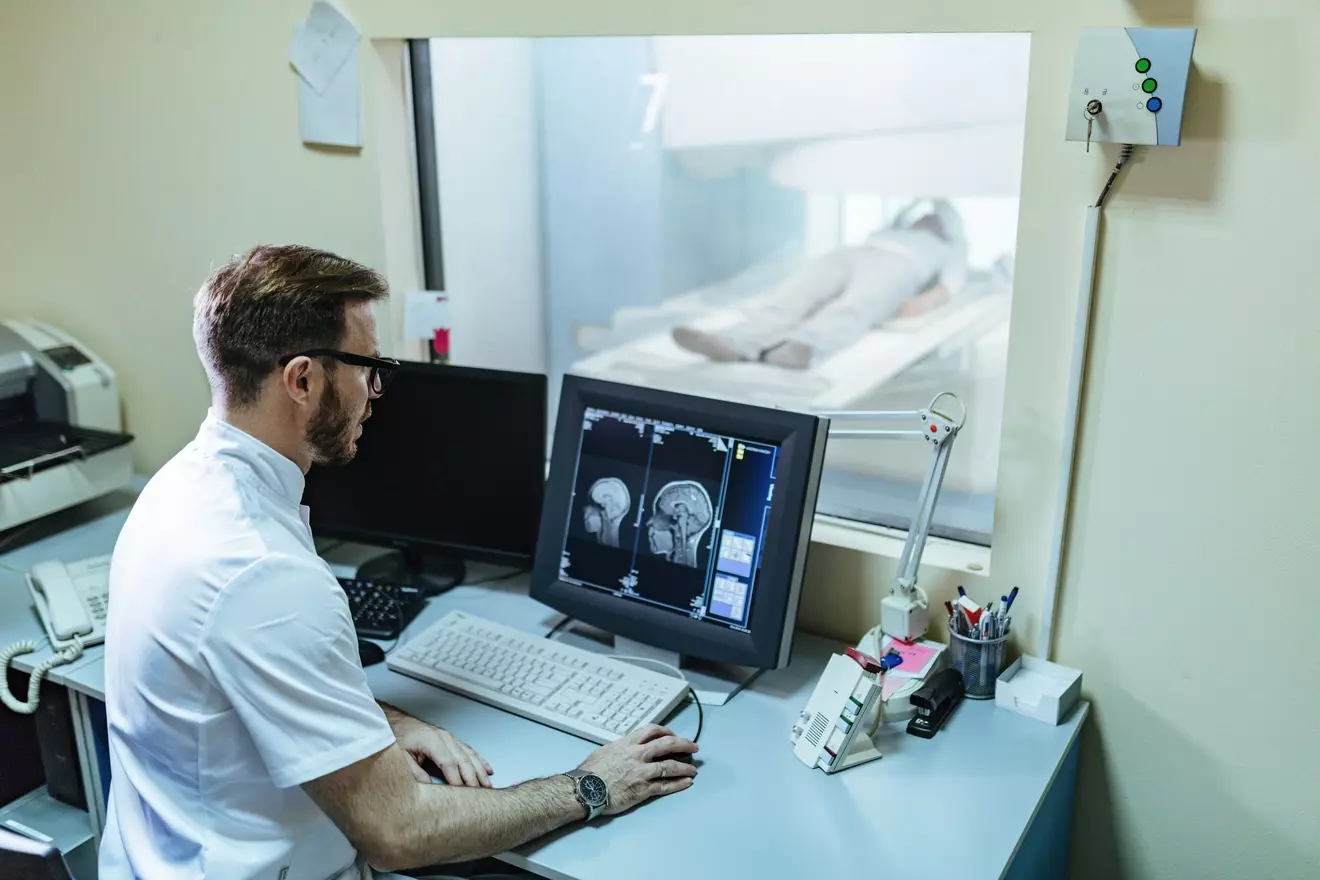Last Updated on November 27, 2025 by Bilal Hasdemir
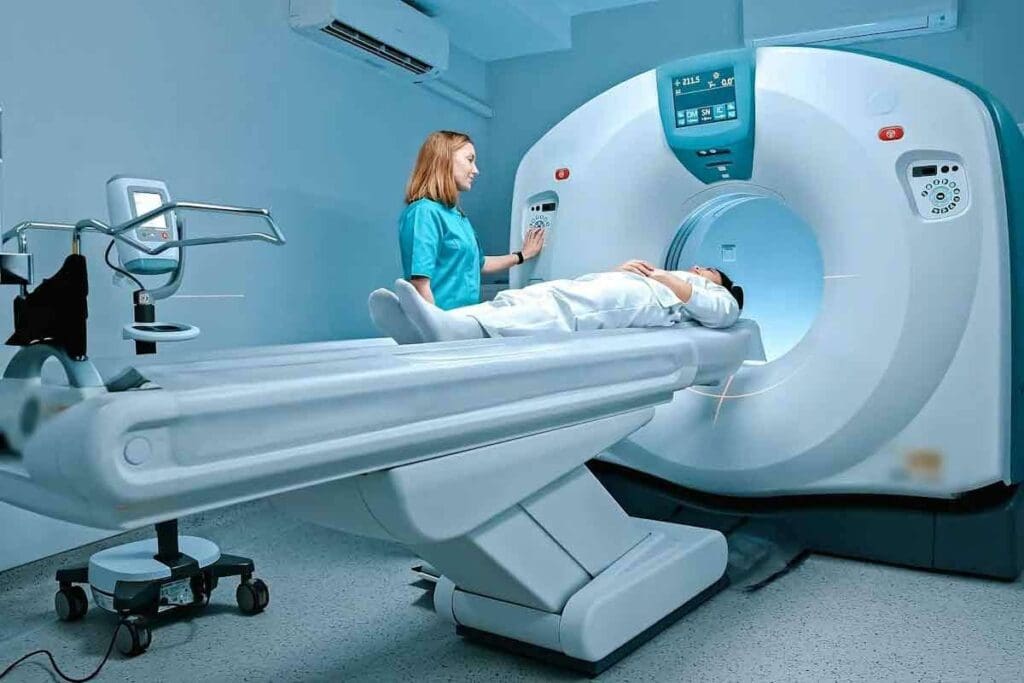
Getting a CT scan with contrast can feel scary if you don’t know what to expect. At LivHospital, we make sure you’re safe and comfortable every step of the way.
A CT scan involves getting ready and then the scan itself, which is quick. The whole thing usually takes an hour. Most of that time is spent getting ready.
We know being ready is important for a good experience. In this article, we’ll walk you through how to prepare for a CT scan. We’ll tell you what to do before and what to expect during the scan.
Key Takeaways
- The entire CT scan with contrast process typically takes about an hour.
- Most of the time is spent on preparation before the scan.
- The actual scan usually takes fewer than five minutes.
- Proper preparation is key for a smooth experience.
- Following the advice of medical experts like those at LivHospital ensures your safety and comfort.
Understanding CT Scans with Contrast
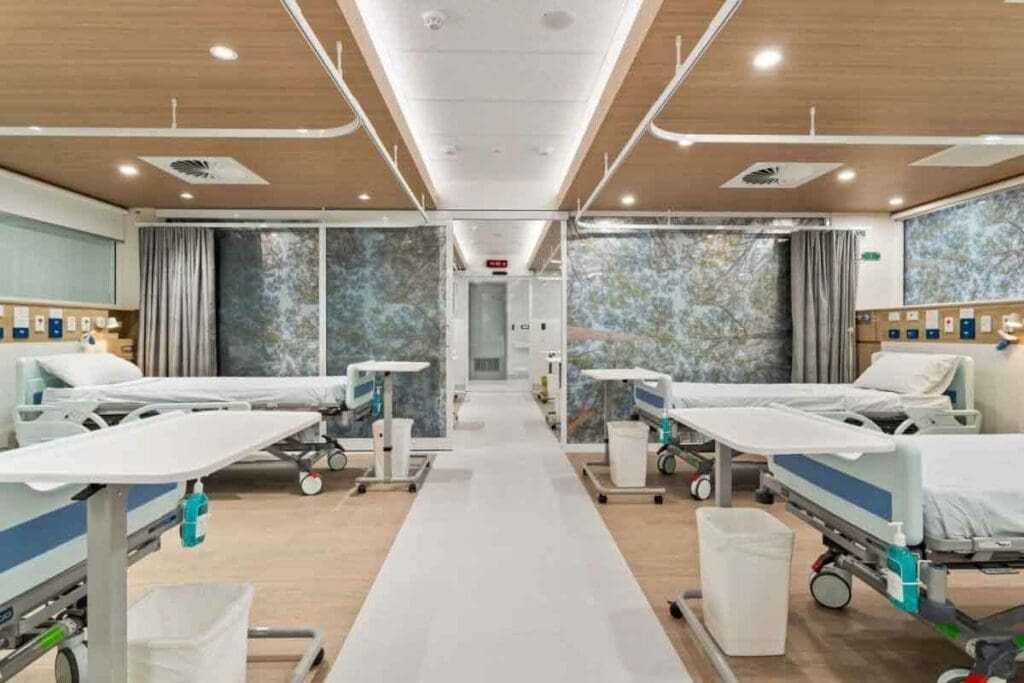
CT scans with contrast agents have greatly improved diagnosis and treatment. They help us see inside your body in detail. This is key for accurate diagnosis and treatment plans.
What is a CT Scan?
A CT scan uses X-rays to take detailed views of your body’s inside. It shows organs, bones, and tissues clearly. This helps doctors diagnose many health issues.
How Contrast Agents Enhance Imaging
Contrast agents make CT images better. They highlight certain body areas. This makes it easier to spot problems. They are great for seeing blood vessels, tumors, and inflammation.
Contrast agents can be given orally or through an IV. It depends on the exam and the body area being checked.
Types of Contrast Materials Used
There are many contrast materials for CT scans. Iodinated contrast is the most common. It’s used both by mouth and through an IV. Barium-based contrast is mainly for the gut.
| Type of Contrast | Administration Route | Primary Use |
| Iodinated Contrast | Intravenous/Oral | Vascular Studies, Tumor Detection |
| Barium-Based Contrast | Oral/Rectal | Gastrointestinal Tract Imaging |
Knowing about contrast materials is important for a CT scan. Your doctor will choose the right one for you.
How Long Does a CT with Contrast Take: Timeline Breakdown

Knowing how long a CT scan with contrast takes can ease your worries. We’ll look at the steps before, during, and after the scan.
Pre-Scan Preparation Time
Getting ready for a CT scan is key. You’ll go through steps like registration, changing into a gown, and getting instructions. This part usually takes 15 to 30 minutes.
Here’s what you might do:
- Share your medical history and any important documents
- Take off jewelry or metal items that could get in the way
- Put on a comfortable hospital gown
Actual Scanning Duration
The actual scan is fast, lasting 5 to 10 minutes. The scanner will take pictures of the area you’re having checked. You might need to hold your breath briefly for clear images.
The scanning itself is usually painless and easy. You’ll lie on a table that moves into the scanner. The machine will move around you to get the needed images.
Post-Scan Monitoring Period
After the scan, you’ll be watched for 15 to 30 minutes. This is to see if you have any bad reactions to the contrast material.
Medical staff will keep an eye on you for signs of an allergic reaction or other issues. If you feel itching, swelling, or trouble breathing, tell the staff right away.
| Component | Typical Duration |
| Pre-Scan Preparation | 15-30 minutes |
| Actual Scanning | 5-10 minutes |
| Post-Scan Monitoring | 15-30 minutes |
| Total Time | 30-60 minutes |
In summary, a CT scan with contrast can take 30 to 60 minutes. This depends on the scan’s complexity and how much prep is needed. Knowing the steps can help you feel more prepared and less anxious.
Differences Between CT Scans With and Without Contrast
Knowing when contrast is needed is important. It depends on the scan’s purpose and the body part being checked. This includes the medical issue being looked at.
When Contrast is Necessary vs. Optional
Contrast agents make CT scan images clearer. They help see blood vessels, tumors, and other details not seen without contrast.
For example, contrast is key for diagnosing cancer, vascular diseases, or infections. It gives a clear view of the affected area. But, for kidney stones or some hemorrhages, a non-contrast scan might be enough.
Key scenarios where contrast is typically used:
- Cancer diagnosis and staging
- Vascular disease assessment
- Infection or abscess identification
Duration Comparisons
A CT scan with contrast takes longer. This is because of the time for the contrast agent and the scan itself.
| CT Scan Type | Average Duration |
| CT Scan without Contrast | 5-10 minutes |
| CT Scan with Contrast | 15-30 minutes |
Preparation Differences
Preparation for a CT scan with contrast is different. Patients often need to fast beforehand. They also have to arrive early for IV insertion.
“Proper preparation is key to a successful CT scan. Patients should follow their doctor’s instructions carefully to ensure the best possible outcomes.” – Radiologist
In conclusion, the differences between CT scans with and without contrast are significant. Understanding these can help patients prepare better for their scans.
General Preparation Guidelines for CT Scans
Getting ready for a CT scan is important for safety and success. Many people feel nervous about CT scans. Being prepared can make you feel less anxious.
Days Before Your Appointment
Your healthcare provider or radiology department will give you specific instructions. This might include:
- Avoiding certain medications or supplements that could interfere with the scan or contrast agent
- Informing your doctor about any allergies, specially to iodine or contrast agents
- Discussing your medical history, including any kidney disease, diabetes, or other relevant conditions
The Night Before Your Scan
The night before, you might need to:
- Fast for a specified number of hours before the scan, typically starting from midnight
- Avoid eating heavy meals or consuming certain types of food that could affect the scan
Following these instructions is key for a correct CT scan.
Morning of Your CT Scan
On the morning of your CT scan, we suggest:
- Arriving at least 30 minutes before your scheduled appointment time to complete any necessary paperwork
- Wearing comfortable, loose-fitting clothing without metal fasteners
- Leaving jewelry and other metal items at home to avoid any possible interference
Here’s a quick guide for your preparation:
| Timeframe | Preparation Steps |
| Days Before | Avoid certain medications, inform doctor about allergies and medical history |
| Night Before | Fast for specified hours, avoid heavy meals |
| Morning Of | Arrive early, wear comfortable clothing, leave metal items at home |
By following these steps, you can make your CT scan experience smoother. If you have questions or concerns, talk to your healthcare provider or the radiology department.
Fasting Requirements for CT Scans with Contrast
When you’re getting ready for a CT scan with contrast, knowing the fasting rules is key. Fasting helps avoid nausea or aspiration risks linked to contrast material.
Why Fasting is Necessary
Fasting before a CT scan with contrast is mainly to avoid stomach contents going into the lungs. The contrast material might cause nausea or vomiting. An empty stomach lowers this risk. It also makes sure the contrast material spreads well, giving clearer images.
“Fasting before a CT scan with contrast is a precautionary measure that helps in reducing possible complications and improving the scan’s quality.”
Medical Guidelines
Standard Fasting Timeframes
The usual fasting time for a CT scan with contrast is 2 to 4 hours. But, this can change based on what your healthcare provider or the imaging center says. It’s important to stick to these guidelines for your safety and the scan’s success.
| Fasting Duration | Guideline |
| 2-4 hours | Commonly recommended fasting period before a CT scan with contrast. |
| Overnight | May be needed for certain CT scans or as per specific doctor’s orders. |
What You Can and Cannot Consume
It’s important to know what you can and can’t eat during fasting. Usually, you should avoid solid foods and might be allowed clear liquids. Always follow what your healthcare provider tells you.
- Avoid: Solid foods, dairy products, and caffeinated drinks.
- Allowed: Clear liquids like water, clear broths, or black coffee/tea without milk or sugar.
Tell your healthcare provider about any dietary restrictions, allergies, or health conditions before the scan.
Hydration Guidelines: Can You Drink Water Before a CT Scan?
Drinking water is key before a CT scan, but knowing the rules is important. Staying hydrated is good for your health, and it’s true for CT scans too. But, there are certain steps to take to get ready right.
Water Consumption Rules Before the Scan
Drinking water before a CT scan is okay, but listen to your doctor’s advice. Always check with your doctor or the radiology team about how much water to drink. Sometimes, they might tell you to drink water, like if you’re getting a CT scan with contrast.
A study found that drinking enough water helps spread the contrast material.
Hydration Recommendations After Contrast Administration
After getting contrast, drinking lots of water is often suggested. Drinking water helps get rid of the contrast and can protect your kidneys, which is good for people with kidney problems. Your doctor will tell you how much water to drink after the scan.
“Adequate hydration is one of the simplest and most effective ways to reduce the risk of contrast-induced kidney damage.” –
Radiology Expert
Special Hydration Instructions for Kidney Health
People with kidney issues or at risk of kidney disease get special hydration tips. Tell your doctor about any kidney problems so they can give you the right advice. Sometimes, getting hydration through an IV is suggested for those at high risk.
- Inform your doctor about any kidney disease or concerns.
- Follow the specific hydration instructions provided by your healthcare team.
- Monitor your body’s response to the contrast material and report any unusual symptoms.
By following these hydration tips, you can make sure your CT scan goes well. Always talk to your healthcare provider for advice on hydration and getting ready for a CT scan.
Oral Contrast: What to Expect
Before a CT scan, patients often drink oral contrast. This substance makes certain body areas stand out. It helps doctors see more clearly during the scan.
Types of Oral Contrast Solutions
Oral contrast agents come in different types. Barium sulfate is often used because it coats the gut well. Iodine-based contrasts are for those who can’t take barium.
When and How Much to Drink
The amount and timing of oral contrast vary. Patients usually drink it before the scan, sometimes hours ahead. Following your doctor’s instructions is key.
For example, you might drink a certain amount at set times before the scan. Sticking to this schedule is important for clear images.
Managing the Taste and Possible Side Effects
Oral contrast can taste bad and may upset your stomach. Drinking it cold or through a straw might make it easier. If you have side effects, tell your doctor.
“Some patients may experience gastrointestinal side effects after consuming oral contrast. If these symptoms persist, medical attention should be sought.”
Knowing what to expect with oral contrast helps prepare for a CT scan. By understanding the types, when to drink it, and managing side effects, you help the diagnostic process go smoothly.
Intravenous (IV) Contrast Administration
Learning about IV contrast administration can ease worries and get patients ready for their CT scan. Getting a CT scan with contrast means the IV contrast is key. It makes the images clearer and more detailed.
The IV Insertion Process
The IV contrast goes into a vein in your arm or hand. A healthcare professional carefully puts a small needle into a vein. Though some might feel a bit of pain, it’s usually quick and easy.
Sensations You May Experience
When getting IV contrast, you might feel cold or taste metal. These feelings are short-lived and go away after the contrast is done. We know these feelings can be scary, but they’re normal.
Safety Protocols During IV Administration
Your safety is our main concern. We stick to strict safety rules during IV contrast administration. We watch for any bad reactions and make sure the contrast is given right.
Knowing about the process and safety steps can make you feel better during your CT scan. If you have questions or worries, talk to your healthcare provider.
Specific Preparation for Abdominal and Pelvic CT Scans
To make sure your CT scan of the abdomen or pelvis goes smoothly, you need to prepare. We know it can feel overwhelming, but our guidelines will help. They ensure your scan is a success.
Special Dietary Restrictions
Before your scan, you might need to stick to a special diet. It’s important to avoid foods that could mess up the scan’s results. Your doctor will tell you exactly what to eat and what to avoid.
“Patients should not eat fatty foods or take certain medicines before the scan,” says a leading radiologist. “It’s key to follow these rules to get clear images.”
Bowel Preparation Requirements
For abdominal and pelvic scans, you might need to prepare your bowel. This could mean taking a bowel prep medication or following a special diet. We’ll give you all the details you need to know.
- Follow the bowel prep instructions given by your healthcare team carefully.
- Stay hydrated during the prep period.
- If you have questions or concerns, contact your healthcare provider.
Additional Contrast Protocols
You might also need to drink a contrast material. This helps make your internal organs show up clearer on the scan. We’ll tell you when and how much to drink.
By following our advice on diet, bowel prep, and contrast, you’ll help make your scan a success. If you have any worries or questions, our team is here to help you.
What to Wear and Bring to Your CT Scan Appointment
Getting ready for your CT scan is important. Knowing what to wear and bring can make your visit easier. It helps reduce stress and makes you more comfortable.
Clothing Recommendations
Wear loose, comfortable clothing for your CT scan. This lets you move easily and feel more relaxed. Avoid clothes with metal, like zippers or jewelry, as they can mess with the scan.
You might need to change into a gown at the medical facility. This is to make sure the scan goes well without any clothes getting in the way.
Items to Leave at Home
It’s best to leave some things at home for your safety and the scan’s success. These include:
- Valuables like jewelry, watches, or lots of cash
- Metal items like hairpins, glasses, or dental work
- Electronic devices that might mess with the scan equipment
Leaving these items behind helps avoid any problems during your CT scan.
Important Documents to Bring
Remember to bring important documents for your CT scan. This ensures everything goes smoothly:
- Your ID and insurance cards
- Any medical records or scan results from before
- A list of your current medicines and allergies
- A doctor’s referral or order for the scan, if needed
Having these documents ready helps our staff prepare you for your scan efficiently.
Special Considerations for High-Risk Patients
High-risk patients need special care for their safety during CT scans. Some medical conditions require extra steps to avoid bad reactions or problems.
Diabetes Management Before a CT Scan
People with diabetes must manage their condition well before a CT scan. This is true if they’re taking medicines like metformin. It’s wise to talk to your doctor about stopping metformin before the scan to avoid lactic acidosis.
Kidney Function and Contrast Safety
Those with kidney disease or poor kidney function face a higher risk of kidney problems from contrast material. We check kidney function before giving contrast to spot those at risk.
| Kidney Function Level | Risk Level | Recommended Action |
| Normal | Low | Proceed with contrast-enhanced CT |
| Mildly Impaired | Moderate | Hydrate before and after the scan |
| Severely Impaired | High | Consider alternative imaging or special protocols |
Allergy History and Preventive Measures
Patients with allergies, including to contrast agents, should tell their doctor. We might give pre-medication to lower allergy risk. Common pre-medications include corticosteroids and antihistamines.
Pregnancy and CT Scan Considerations
Pregnant women should tell their doctor before a CT scan. While the risk to the fetus is usually low, we take extra steps to protect them. We weigh the benefits and risks and look for other imaging options when we can.
Conclusion
Getting ready for a CT scan with contrast is very important. Knowing what to do and following the steps in this article helps a lot. We talked about how to prepare before the scan, the difference between scans with and without contrast, and how to stay hydrated and fast.
Being well-prepared is key to getting good images for your doctor. If you have any questions about getting ready for your CT scan, talk to your doctor. They can give you specific advice to make sure you’re ready.
To sum up, preparing well for your CT scan is very important. By following your doctor’s advice and the guidelines we mentioned, you can help make sure the scan goes well. This is good for your health and your treatment plan.
FAQ
How long does a CT scan with contrast take?
The actual scan takes a few minutes. But getting ready and checking after the scan can take 30-60 minutes total.
Do I need to fast before a CT scan with contrast?
Yes, you need to fast for a few hours before. The time can vary, but it’s usually 2-6 hours.
Can I drink water before a CT scan with contrast?
Usually, you can drink water before the scan. But always check with your doctor first.
What is oral contrast, and how do I prepare for it?
Oral contrast is a drink you take before the scan. Your doctor will tell you what to drink and when.
How is IV contrast administered?
IV contrast goes through a small needle in your arm. It’s quick and usually doesn’t hurt much.
Are there any special dietary restrictions before an abdominal or pelvic CT scan?
Yes, you might need to follow a special diet before certain scans. Your doctor will give you all the details.
What should I wear to my CT scan appointment?
Wear comfy, loose clothes without metal or jewelry. You might need to change into a hospital gown.
Are there any special considerations for patients with diabetes or kidney disease?
Yes, if you have diabetes or kidney disease, you need special care before the scan. Tell your doctor about your health.
Can I eat or drink after a CT scan with contrast?
Usually, you can eat and drink normally after the scan. But always listen to what your doctor says.
How can I manage any side effects from contrast material?
If you have side effects like nausea, tell the medical team right away. They can help you.
Is it safe to have a CT scan with contrast if I’m pregnant or breastfeeding?
If you’re pregnant or breastfeeding, tell your doctor. They’ll check if it’s safe for you.
What documents should I bring to my CT scan appointment?
Bring your medical records, insurance, ID, and a list of your medicines and allergies.
References
- NHS. (2023). CT scan. https://www.nhs.uk/conditions/ct-scan/


